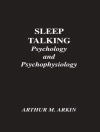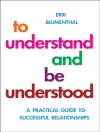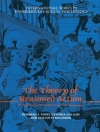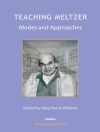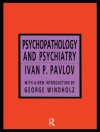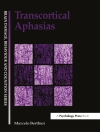This is a concise paperback version of the authoritative
International Handbook of Personal Construct Psychology, focusing
on the practical elements of that volume. Ideal for the individual
practitioner, this selection of chapters covers the basic theory of
personal constructs; the many skills and tools used by personal
construct psychologists; its general application to psychotherapy
and counselling; as well as many specific applications such as
cross-cultural understanding, post-traumatic stress, children,
teacher education, organizational change, nursing and family
therapy.
This is an indispensable guide to theory and skills for those
wishing to use the personal construct psychology approach in their
practice. It will appeal to a wide range of professionals such as
psychologists, teachers, psychiatrists, nurses, system engineers
and managers.
Table des matières
About the Editor ix
International Advisory Panel xi
List of Contributors xiii
Preface xv
Acknowledgements xvii
Section I: What Personal Construct Psychology Is All About
Chapter 1 George Alexander Kelly: The Man and his Theory 3
Fay Fransella and Robert A. Neimeyer
Chapter 2 The Logic of Passion 15
Don Bannister
Chapter 3 The Power of a Good Theory 29
Sean Brophy, Fay Fransella and Nick Reed
Section II: What Are Some of PCP’s Techniques?
Chapter 4 Some Skills and Tools for Personal Construct Users 41
Fay Fransella
Chapter 5 A Range of Elicitation Methods to Suit Client and Purpose 57
Pam Denicolo
Chapter 6 The Repertory Grid Technique 67
Richard C. Bell
Chapter 7 Making Sense of Dependency 77
Beverly M.Walker
Chapter 8 Expertise and Expert Systems: Emulating Psychological Processes 87
Mildred L.G. Shaw and Brian R. Gaines
Chapter 9 From Theory to Research to Change 95
Fay Fransella
Section III: How Can PCP Help Us to Understand People or Help Them to Change?
Part 1: Working with the Individual or Individuals in Small Groups
Chapter 10 Is Treatment a Good Idea? 109
George A. Kelly
Chapter 11 An Audacious Adventure: Personal Construct Counselling and Psychotherapy 113
Franz R. Epting, Marco Gemignani and Malcolm C. Cross
Chapter 12 The Evidence Base for Personal Construct Psychotherapy 123
David Winter
Chapter 13 Constructive Intervention with Children when Presented as Problems 133
Tom Ravenette
Chapter 14 How Can We Understand One Another if We Don’t Speak the Same Language? 145
Devi Jankowicz
Chapter 15 Working with Anger 153
Peter Cummins
Chapter 16 An Approach to Post-Traumatic Stress 163
Kenneth W. Sewell
Chapter 17.1 Nursing 173
Julie M. Ellis, Jacqui Costigan and Julie Watkinson
Chapter 17.2 Family Therapy 177
Harry Procter
Chapter 17.3 The Metropolitan Police, London: A Personal Account 181
John Porter
Chapter 17.4 A Sporting Use of Personal Construct Psychology 185
David Savage
Chapter 17.5 Artificial Intelligence 189
Jack Adams-Webber
Part 2: Working with Large Groups of People
Chapter 18 Construing Teaching and Teacher Education Worldwide 195
Maureen Pope
Chapter 19 Making Sense of the ‘Group Mind’ 203
Adrian Robertson
Chapter 20 Charting Organizational Change 213
Nelarine Cornelius
Chapter 21 Clarifying Corporate Values: A Case Study 223
Sean Brophy
Section IV: Where Might Personal Construct Psychology Be Going Now?
Chapter 22 Personal Construct Psychotherapy and the Constructivist Horizon 235
Robert A. Neimeyer and Scott A. Baldwin
Chapter 23 New Avenues to Explore and Questions to Ask 245
Fay Fransella
Appendix 1 Theoretical Definitions 253
Appendix 2 Some Basic Books on Personal Construct Psychology 256
Appendix 3 Internet Resources for Personal Construct Psychology 259
Brian R. Gaines
References 263
Index 283
A propos de l’auteur
Fay Fransella is Founder and Director of the Centre for
Personal Construct Psychology, Emeritus Reader in Clinical
Psychology, University of London and Visiting Professor in Personal
Construct Psychology at the University of Hertfordshire, UK. She
has written eleven books, eight of them specifically relating to
personal construct psychology and published over one hundred and
fifty journal papers and chapters.
She trained and worked as an Occupational Therapist for ten years
before taking a degree in psychology and a postgraduate diploma in
clinical psychology in 1962. It was during her first job as a
lecturer at the Institute of Psychiatry, London that she was
introduced to George Kelly’s personal construct psychology.
It was a revolutionary alternative to the dominant behaviourism of
the time. She found the view that we are all free agents
responsible for what we make of the events which continually
confront us particularly liberating. Since that time she has
carried out research, mainly into problems of stuttering and
weight, together with teaching and writing within the framework of
Kelly’s ideas.


